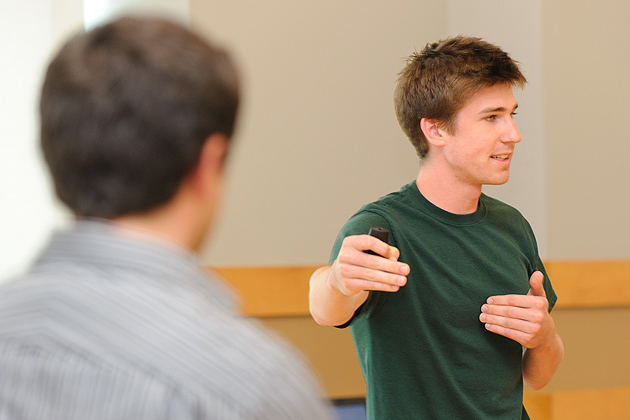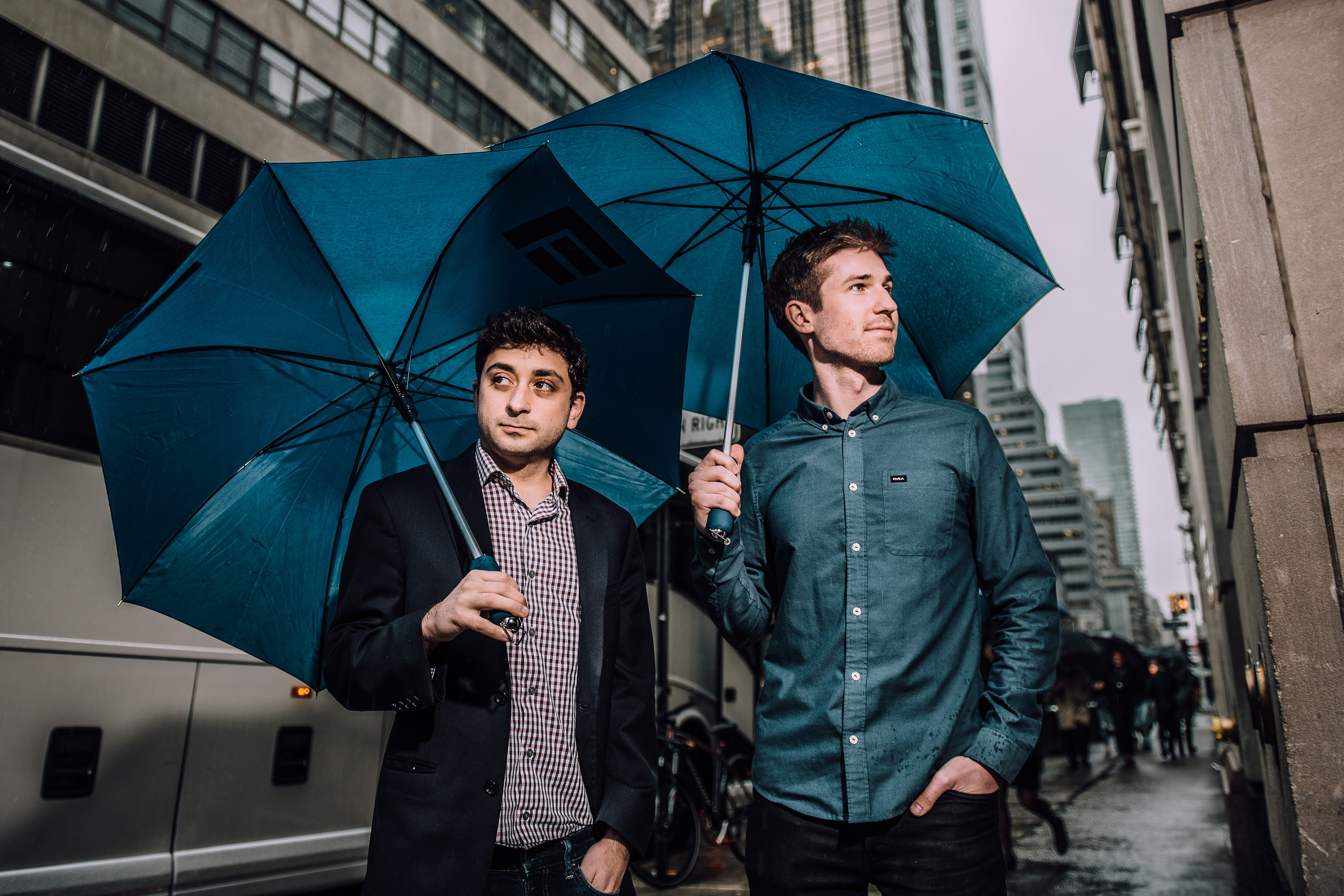If you’ve taken a cab or a limo in any major city in the U.S. in the past few years, odds are good that a team of UConn alumni helped orchestrate your ride.
Dashride, the leading provider of mobile dispatching software for transportation companies, is the brainchild of UConn alumni Nadav Ullman ’12 (BUS), the CEO, and Thomas Bachant ’13 (ENG), co-founder and CTO.
Their goal is to help ground transportation fleets launch new mobility services in a quickly changing industry. These fleets range from taxi cabs to medical transportation companies, and more recently, driverless fleets.
Their success builds upon a business idea they launched while they were students at UConn. Dashride now supports nearly 500 transportation companies, serving most major U.S. cities, as well as parts of the United Kingdom, Singapore, and Australia.
Disrupting the Disruptors
“We started to sell our new platform before we even had a name,” Ullman recalls of Dashride’s launch in 2013. “There were 200,000 taxi and limo companies in the U.S. that needed to modernize in order to compete with emerging ride-share organizations. Many of the taxi and limo companies had been using the same dispatching practices for 20 or 30 years.
“Our focus was not on maintaining the status quo,” he says, “but building a technology that’s well positioned for the future, that will continue to grow and improve.”
Dashride quickly became a viable business, and it began to attract outside investment.
Our focus was not on maintaining the status quo, but building a technology that’s well positioned for the future. — Nadav Ullman '12 (BUS)
“Taxi companies were susceptible to disruption because they didn’t have the technology to meet their customers’ needs,” says Bachant. “With Dashride, fleet owners now have access to the modern software they need so they can focus on providing the best service and growing their businesses. Any company using Dashride has the tools to become an industry leader.”
Most of the taxi and limo companies were struggling with systems that were ineffective, outdated, and disconnected from modern technology. The first step for Dashride was establishing mobile apps, but the founders went on to develop more complex, robust, and comprehensive software.
Dashride allows services such as advance customer booking; billing and accounting tools; a nationwide affiliate program; detailed mapping and help with routing; and even a system that rewards overbooked services who share their riders with another fleet.
“We dug in and worked closely with our growing client base to get continuous feedback,” Ullman says. “We didn’t stop until we knew what their challenges were, what they wanted, what they needed. We continue to work with our customers today to ensure we’re constantly improving and addressing our clients’ major challenges.”
Forerunner ‘Sobrio’ Started at UConn
Now located in the heart of Manhattan, on Fifth Avenue, Dashride’s roots go back to UConn, providing safe rides to students who had been out partying on the weekend.
“People were going out at night and needed safe rides home. Some were driving after being out drinking; others would walk for miles in the cold,” Ullman recalls. “We also knew there were a lot of students who wanted to make extra money and would be willing to give other students a ride. We matched the two together in a company named Sobrio.”
Sobrio won UConn’s Business Plan Competition and the School of Business’ first Innovation Quest competition.
“When I first met Nadav and Tom, I quickly concluded that they were on a pathway to success,” says Rich Dino, a management professor who is director of the iQ program. “From the early days of working closely with them as iQ Ambassadors, I was very impressed with the sophistication of the questions that they asked, as well as their willingness to seek out the evidence needed to support their decision-making.
“Both are driven, dynamic entrepreneurs, continually scanning the environment for opportunities,” Dino continues. “They are industry disrupters, and transformed their market solution into the leading position in dispatching software for transportation companies.”
After launching Sobrio at UConn in 2012, the friends expanded it to UMass, the University of Rhode Island, University of Michigan, Michigan State, Ohio University, and Stony Brook University. The two even lived out of an RV for a few months as they traveled from one campus to another launching the app at new locations.
Look for Proof Your Idea is Viable
Ullman advises student entrepreneurs at UConn to take advantage of the many opportunities for business mentoring, especially through iQ, which matches aspiring entrepreneurs with the business knowledge and expert mentors to take their ideas to the next level.
It was at the iQ startup weekend that Ullman, a consumer behavior major, and Bachant, a biomedical engineering major, met and became business partners.
The iQ program played an important role in helping the two create their first business, Sobrio.

“One thing iQ did was introduce me to some people that were very influential in getting me to the next level,” Ullman says, singling out Dino, UConn iQ founder Keith Fox ’80 (BUS), and angel investor Mary Anne Rooke. “They created a community of people that really wanted to help out. They had no hidden agenda.
“When you’re going through iQ, you may not realize how special that is,” he adds. “They are not taking any equity and, outside of a college setting, that’s unheard of.”
Ullman says the most important thing for aspiring entrepreneurs is to get proof that what they are bringing to market is something people want.
A lot of people make the mistake of thinking they have to plan everything right away, he notes. “Planning steps 2 through 6 before you evaluate your market prevents you from focusing on the important stuff.”

As Sobrio grew, the company received publicity in local newspapers and on social media, and soon local fleet companies started calling Ullman and Bachant asking for advice and paving the way for Dashride.
Dashride now has 11 employees, including several from those UConn days, including Joseph Thibeault ’11 (ENG), a computer science and engineering graduate who is vice president of engineering, and Michael Magnoli ’13 (CLAS), a neurobiology major who is director of mobile development.
“We found a market with a big, and growing, demand,” says Ullman, “and were able to build the technology in a way that people found very valuable.”
Into the Future
Ullman says he spends a lot of time planning for the future, which includes partnering with car manufacturers and expanding into the autonomous vehicle industry.
“That industry has tremendous potential, and by 2025 is expected to be a $40 billion industry … and they will need a great ride-sharing, ground logistics platform,” he says. “It doesn’t necessarily matter if there is a driver in the car or not. We’re building the future here.”



